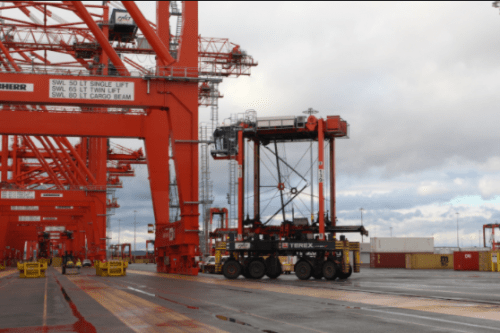During the first quarter of 2020, cargo volumes at many U.S. ports are expected to go down by 20 percent or more compared to 2019 due to the impact of the coronavirus outbreak, according to the American Association of Port Authorities (AAPA).
The drop is ascribed to longer than usual Lunar New Year shutdowns of factories in China, in what is usually a slow season, amid measures aimed at curbing the spread of the virus. As a result, imports at major U.S. retail container ports have decreased substantially.
In order to address the lower demand, carriers have employed capacity management measures in the form of blanked sailings.
In weeks 5-15 of 2020, carriers have voided a total of 111 sailings on the Transpacific, of which 48 were blanked due to COVID-19, and the remainder due to “normal” Chinese New Year capacity management, according to the data from Sea Intelligence.
“The overall economic impact of this type of crisis can easily run into the tens of billions of dollars,” Chris Connor, President, and CEO of AAPA, said.
Port of Los Angeles Executive Director Gene Seroka said earlier this month that business from China dropped dramatically due to massive shutdowns of factories in the country as part of measures aimed at curbing the virus outbreak.
According to Seroka, 40 vessel sailings were canceled from China to the Port of Los Angeles from February 11 to April 1, representing around 25 percent of the port’s normal traffic.
Due to the ongoing situation, Seroka expects the port’s volume in the first quarter of 2020 to be down by around 15 percent when compared year-on-year.
“Things will rebound eventually, and indeed we’re hearing news about factories that are coming back on-line in China, and ports there ramping back up to move the cargo. At the same time, supply chain managers around the world are working tirelessly to keep cargo moving to ensure that the goods we need are available when and where we need them,” Connor said.
